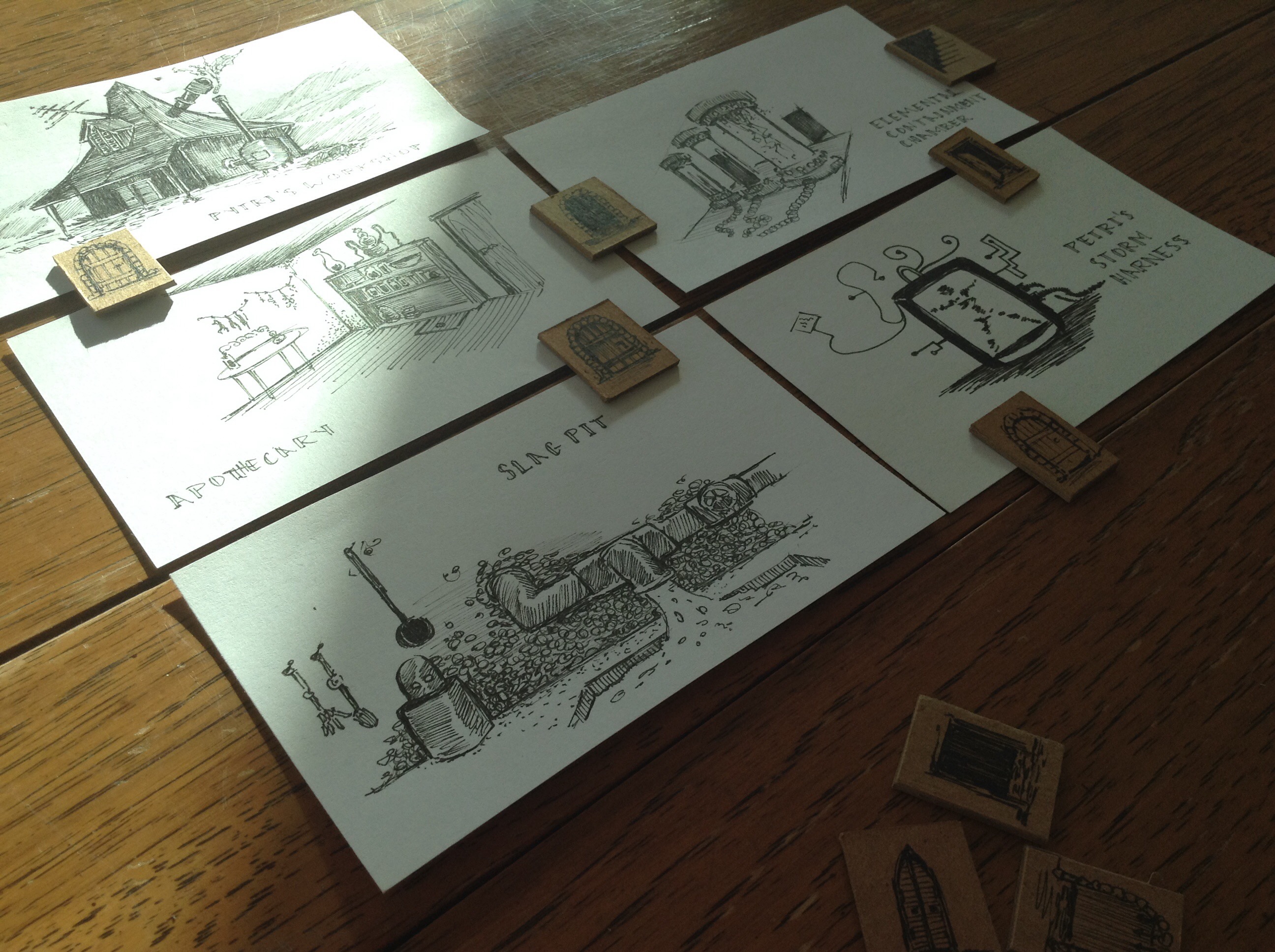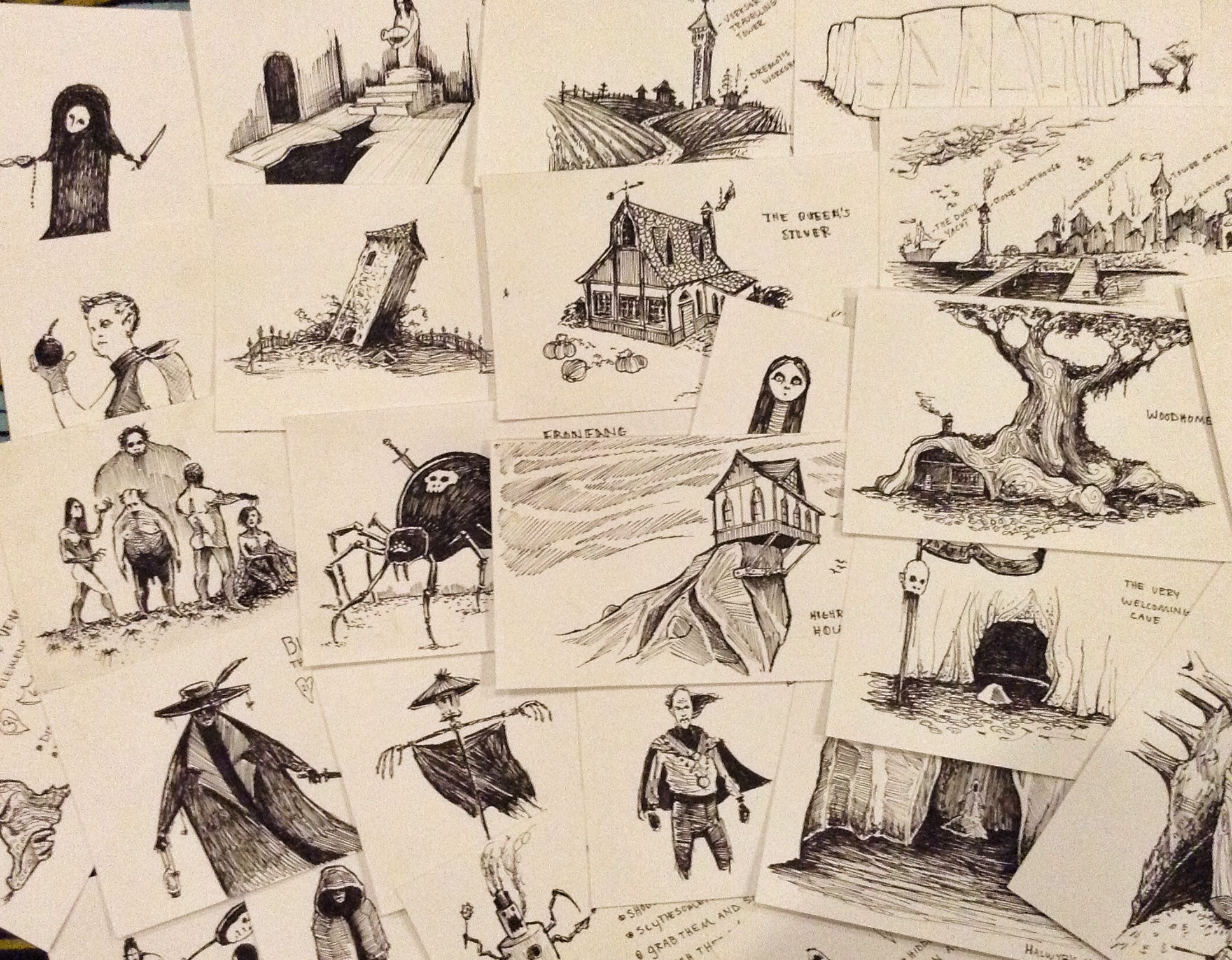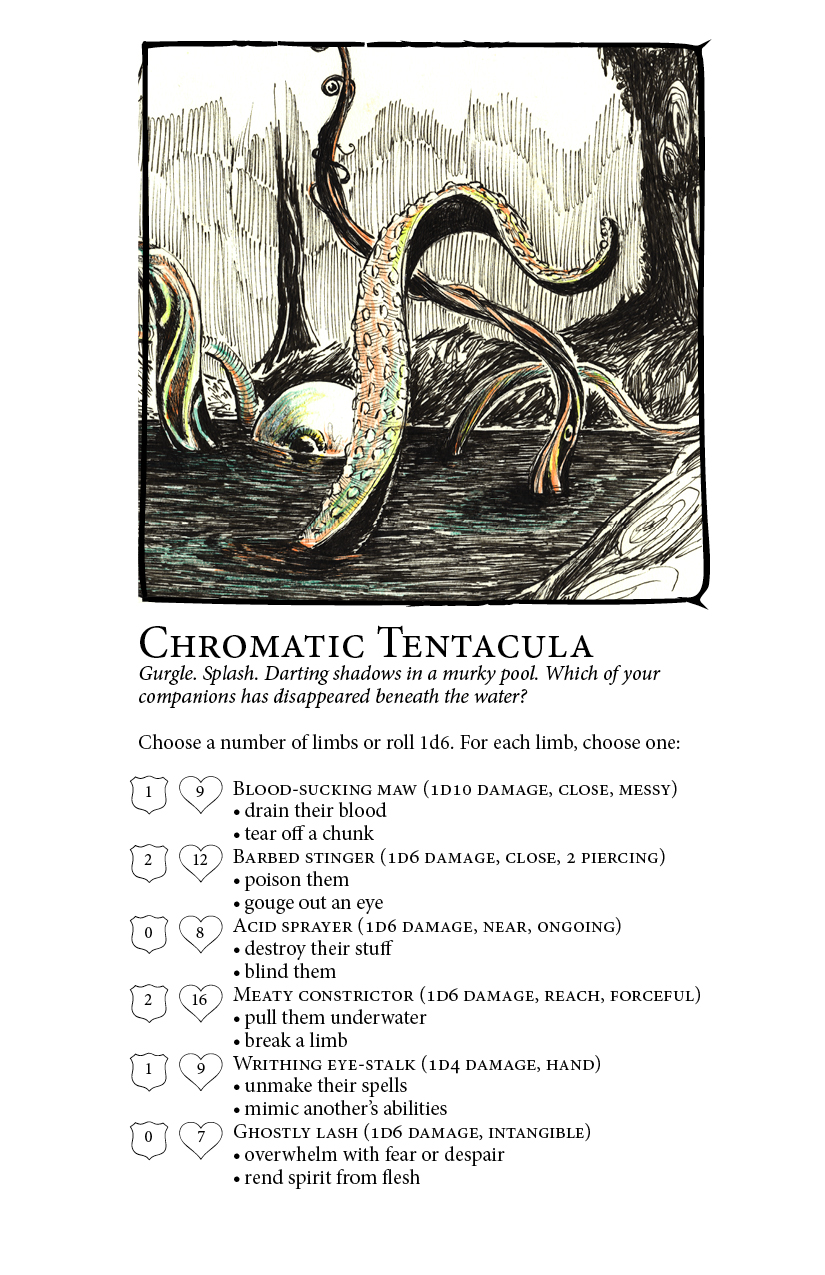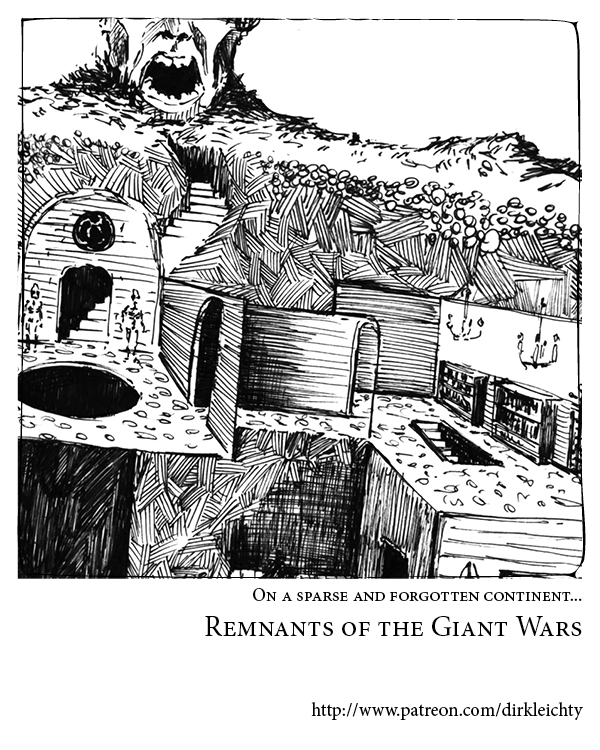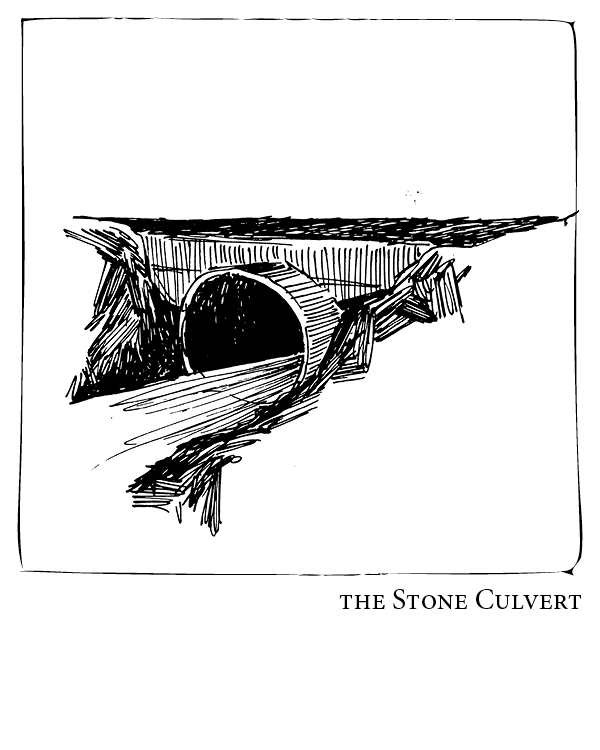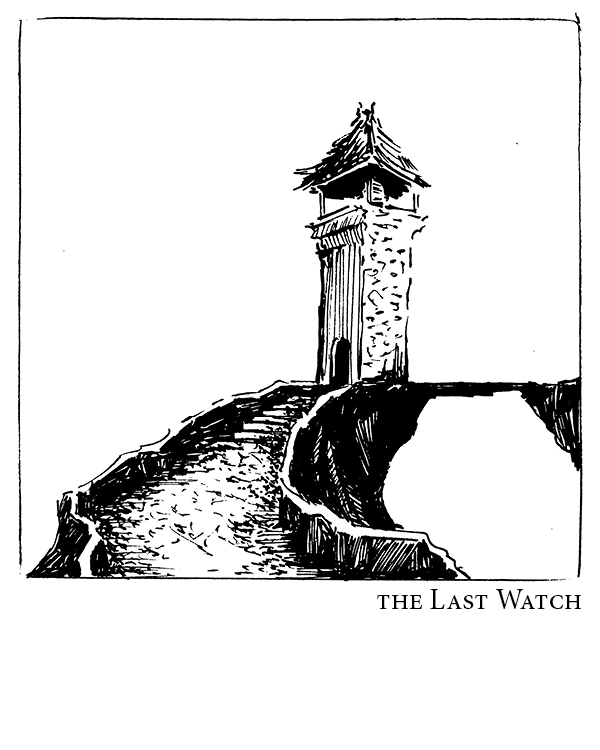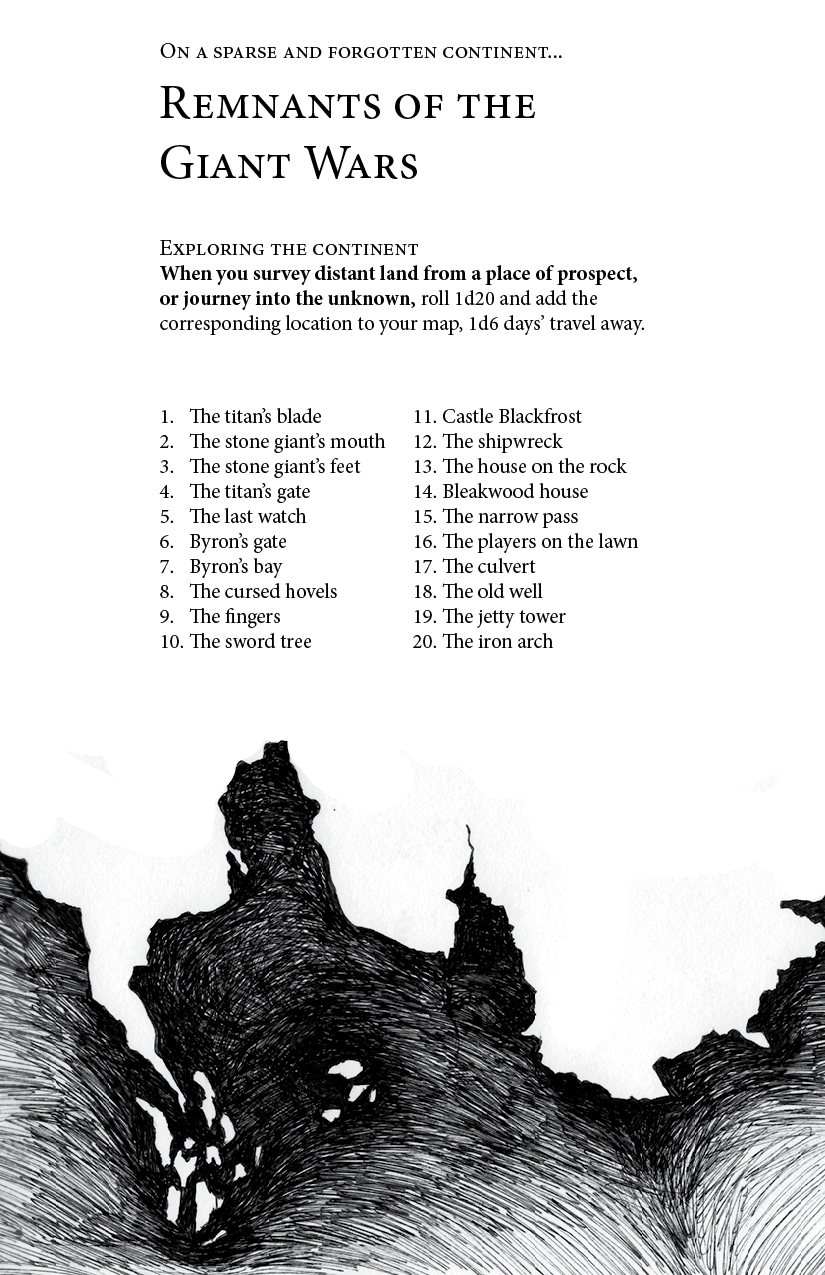Working on a compendium class for a new campaign.
Working on a compendium class for a new campaign. Playing with it as a way to invite player input on fronts. Looking for feedback before I introduce it to the table. A few moves are designed specifically for the Bard:
Spidermouth Prophet
When you learn the forbidden language of the elder Spiders, gain the move “Spidermouth Prpphecy.” You may take any of the subsequent moves as advanced moves when you level up:
Spidermouth prophecy
When you learn this move, declare three portents of the Spider Queen’s return. Make them as cryptic as you like, but you will know when they come to pass.
[ ] Who must die?
[ ] What lost relic must be recovered?
[ ] What temple, palace or monument must be destroyed?
When a portent comes to pass, declare how it fullfills the prophecy and mark it off.
When you parley with someone using the Queen’s return as leverage, take +portents to your roll.
Calling the swarm
When you petition the eight-legged masses with an offering of blood, they will obey your command.
Silk blessing
When you aid an ally with your arcane art, add “+3 armor forward” to your list of possible effects.
Blood scry
When you taste the blood of a thinking creature, ask the GM what memory it contains.
Edict of poison
When you grant an ally bonus damage with your arcane art, you may also enhance their attack with the effect of any known touch poison.
You also gain knowledge of the following poisons:
Recluse venom (touch): causes painful, disfiguring blisters around the affected area
Widow’s bite (touch): causes the targeted area to spasm or go limp
Ebonfang’s bile (touch): causes immediate numbness in the targeted area
Runic web vigilance
When you draw the rune of vigilance on a place, roll+INT. With 10+, hold 2, with 7-9 hold 1. Spend your hold to:
-observe the place from afar, as though you were present there
-gain +1 forward to discern realities or defy danger within the place
The GM may spend your hold to tell you when someone intrudes upon that place.
Runic web trap
When you draw the runic circle of capture on a place and wish to trap a creature within it, roll+INT. With 10+, you may keep them trapped as long as you maintain your concentration. With a 7-9, choose one:
-They won’t stay bound for long
-You are also bound in place

